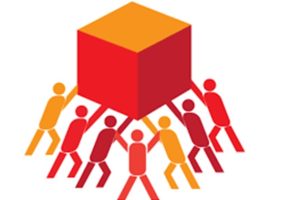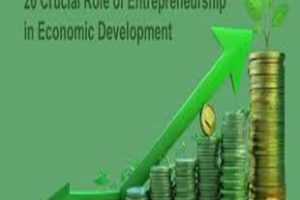BY TSEGAYE TILAHUN
Ethiopia was concentrating only on the promotion and development of international tourism. The country did not recognize the potential benefits of the domestic one. However, the development of domestic tourism has enormous economic, social, cultural and political benefits.
It also minimizes seasonality of tourism activities, absorbs shock during hard times like COVID-19 pandemic, saves potential hard currency, creates solidarity among people, a source of investment and brings sustainable development in the country.
Tewodros Habtamu, Culture and Tourism Ministry Domestic Tourism Expansion and Development Directorate Coordinator told The Ethiopian Herald that promoting domestic tourism is one of the tourism recovery strategies. In the last, two years, the government has been performing various activities to develop and promote domestic tourism.
The expansion of parks and resorts can play a meaningful role in promoting domestic tourism as well as supporting the Unity, Entoto and other parks that developed recently have been becoming an opportunity to promote domestic tourism in Ethiopia than ever. Moreover, domestic tourists are frequent travelers than international tourists and less affected by situations of the international market.
Basically, as domestic tourism needs the collaboration and role of all stakeholders, the Ministry has developed the domestic tourism strategy to solve the problems. The draft strategy has been sent to the Office of the Prime Minister. “If it endorse, it will create various benefits and opportunities.”
The main challenge to promote domestic tourism is lack of awareness to effectively utilize the sector. People’s awareness about its economic and social benefits is at a low level. The tendency for international tourism development was also endangering the sector even if domestic tourism has social, economic and cultural benefits.
Earlier, there were planning and implementation gaps to create awareness. To change the situation, different campaigns, capacity building training, events and forums have been underlying to address these challenges. Wide ranges of advocacy activities are also important in regional states and city administrations.
Furthermore, the development of domestic tourism needs a lot of work in the future. Now, the ministry is exerting effort to solve these challenges. The country has not properly nurtured domestic tourism.
Now, the country has planned and envisaged to revive domestic tourism. Due emphasis has also been given to develop tourism sites of the country. Ethiopia has been planning to develop 59 new tourism destinations in the next ten years to implement coordinated service for local and international tourists.
Current tourism projects like Unity Park, where many people visit every day have been promoting domestic tourism in Ethiopia. The number of domestic visitors has been increasing through recently developed tourism projects. The country is generating better revenue from it.
These projects are contributing to the country’s domestic tourism promotion and becoming exemplary for other tourism projects. As a result, the number of Ethiopian travelers is increasing from time to time. The construction and development of tourism projects at all corridors in the country is a good opportunity for the sector. And it will contribute to the tourism industry as well as the economy.
The Unity Park project has demonstrated Ethiopia’s ability in changing resources/tourism destinations into tourism products. It gives greater confidence for the private sector or investors who want to invest in the sector. Developing alternative and competitive tourism destinations like Unity Park and others saves potential of the outflow of the country’s hard currency. The project changed the attitude of people towards domestic tourism.
According to him, now, the timely question of people is tourism sites or parks’ development in their localities. Several people are asking the government to establish and develop tourism destinations in their areas as they understood the benefits. The government is also working to expand tourism destinations in regions to enable to create more job opportunities and generate additional income across the value chain.
Due to less emphasis that has been given for domestic tourism, it was affecting the development of the sector. The country was not generating much revenue from domestic tourism due to lack of proper marketing and promotion, awareness creation, information, product development, tourism destination fairness as well as lack of coordination of stakeholders in the sector.
There are abundant socio-economic and environmental advantages to government and stakeholders to focus on domestic tourism as it has huge potential. To address these problems, the Ministry has been providing capacity building training for its stakeholders.
According to the World Tourism Organization (WTO), domestic tourism refers to traveling within one’s own country for the purpose of leisure or pleasure rather than a subset of international tourism.
Moreover, the ministry has planned to set or launch an Urban Tourism Award to recognize the best tourist destination cities and towns based on various criteria such as crime rate, hygiene and safety among others. It aimed to make them competitive, creating opportunities to promote themselves in the sector.
In Ethiopia, there is a tendency or trend of focusing only on well promoted or international tourism markets. Domestic tourism was underestimated largely due to the fact that international tourism is an indiscernible hard currency generator.
“Our culture of domestic tourism is poor. There was no strategy that supports the development of our domestic tourism. Developing and promoting domestic tourism is the main focus to boost tourism revenues.”
The government is working to create suitable opportunities for each citizen with an incentivized tourism package system. Creating suitable opportunities not only for economically capable citizens, but also for incapable ones is mandatory.
As a result, we are developing a system for it to apply suitable conditions for women, children, students, disabled people, and youths among others. Communication has begun with tour operators to implement the system. We are on the way to apply. This means the service sectors are improving service delivery for disabled people, he added.
For instance, blind people have no involvement in connection with tourism. However, some service providers have set up facilities for disabled people. Although they can’t visit the sites, they have the right to get information or data about tourism destinations.
As a result, the ministry is developing Braille guideline for blinds to support them to get information. It will get its completion this Ethiopian fiscal year. The strategy will increase the participation of disabilities, he said.
Moreover, to ensure the fairness of domestic tourists’ participation is important. The domestic tourism strategies will ensure the fairness of visitors in Ethiopia. It will also encourage the visiting culture of citizens mainly during the low tourism season. Various efforts are ongoing to make domestic tourism the key economic driving force of the country, he said.
Since international tourism is seasonal business activity, strengthening the development of domestic tourism in the country fills the seasonal gap of tourism business activity.
It benefits people directly and indirectly by creating opportunities for across value chain business activities. It also gives permanent business activity avoiding seasonality. It also creates a tendency of investment attraction.
The Ethiopian Herald December 10/2020





